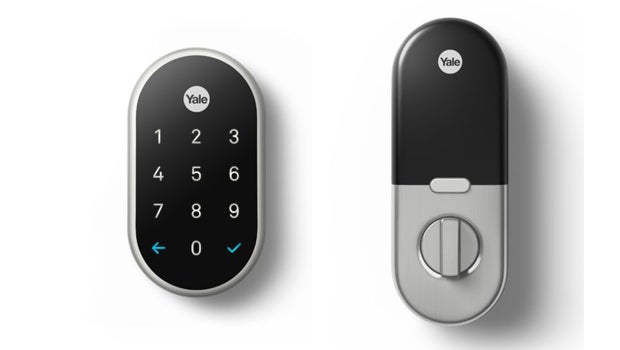Yale Linus is the first third-party product enabled using Nest Weave

Yale has made a smart lock, and it’s all possible thanks to Nest opening up its tech to other firms.
Called the Linus lock by Yale, it syncs to the Nest app on your smartphone to let you control it remotely.
You can also lock and unlock it from wherever you are through the app. Plus it can send you security alerts as well as daily, weekly and monthly home access history reports.
It’s possible thanks to Nest Weave, a communication protocol that lets devices talk to each other and to Nest products. Previously it was only available to Nest devices, but now the firm has opened it up to third-party manufacturers making Works with Nest devices.
Nest Weave makes it possible to connect power-constrained devices and those that require low latency and redundancy. It means pretty much any product can now be equipped with Home and Away states, smoke and carbon monoxide alerts, motion and sound alerts and peak energy rush hour events.
In other words, your home is about to become a lot more connected.
Nest has also opened up the Nest Cam API, making it possible for developers to connect their products to its smart home camera. August, Mimo, Petnet, Philips Hue and Skybell are the first to work with the API.
Read more: Smart thermostats in the UK: Nest and its rivals compared
And it’s launched the Works with Nest Store, an online catalogue featuring Nest-compatible products.
Nest Weave will be available to developers next year. That’s the same time that the Linus lock by Yale will go on sale.

